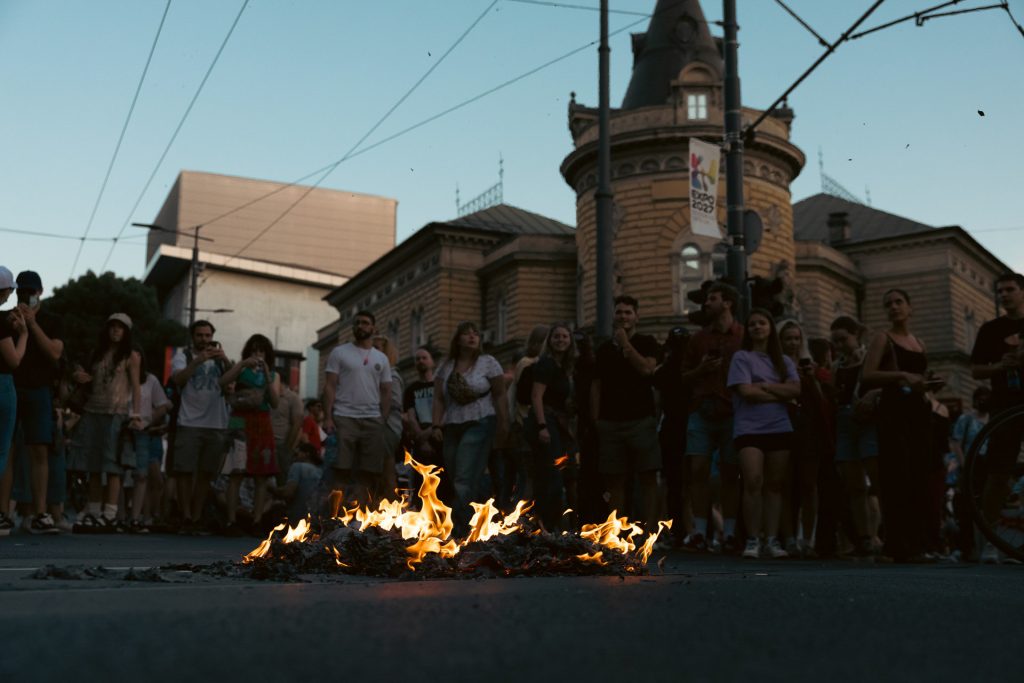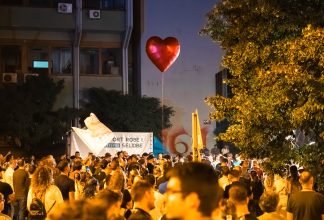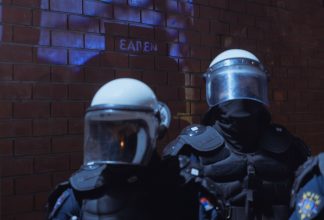Serbian police allow masked goons to beat citizens
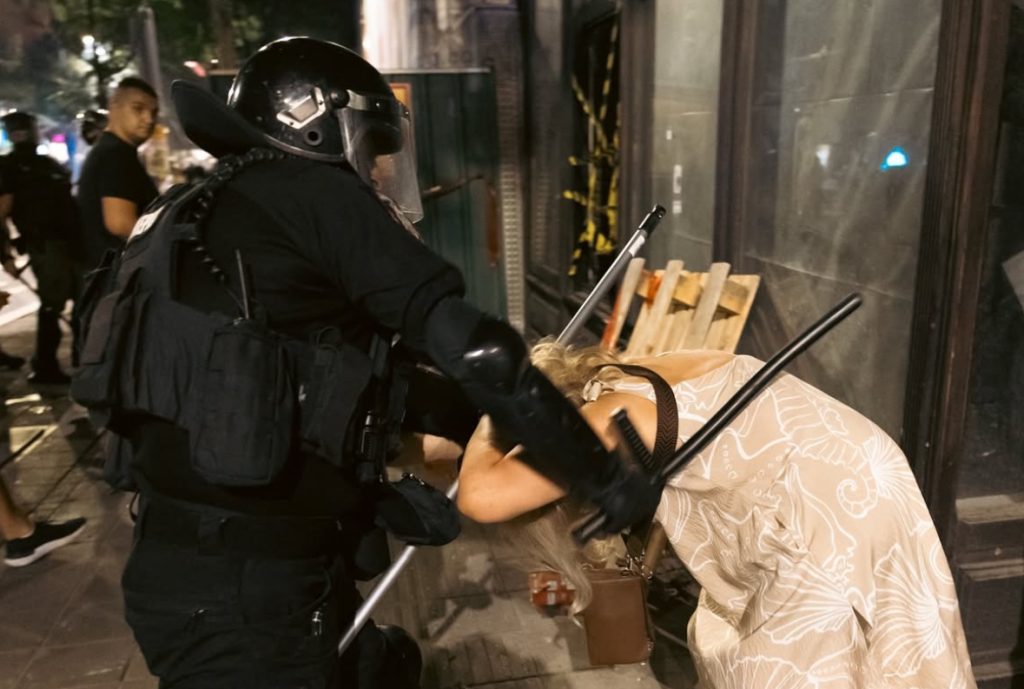
As its grip on power is slipping, Serbia’s government is resorting to ever more desperate measures against pro-democracy protesters. This week, the police actively protected masked goons that brutally attacked citizens with iron rods, flares, rocks, and truncheons. In some cases, officers even used outright violence themselves instead of protecting their fellow citizens.
Democracy protests flaring up again after summer
This summer, Serbia’s streets seemed to rest: people were on vacation and the protests that have been shaking the country for months slowed down. The ruling party may even have thought the fever had broken. But sooner than expected, the quiet shattered again.
On Tuesday 12 August, a crowd gathered in the north of the country to protest in front of the ruling Serbian Progressive Party’s (SNS) offices in Vrbas. Protesters were met with masked SNS supporters armed with sticks, truncheons, and rocks, who set off flares, attacked protesters with iron rods and smashed glass bottles at their feet.
At least 50 people were injured during the chaos, including 16 police officers. Shockingly, however, the officers’ injuries mostly stemmed from them defending the SNS premises: it was these offices, not the protesters, that the police guarded. Instead of safeguarding the public, they stood like shields around the SNS aggressors, allowing the beatings to continue.
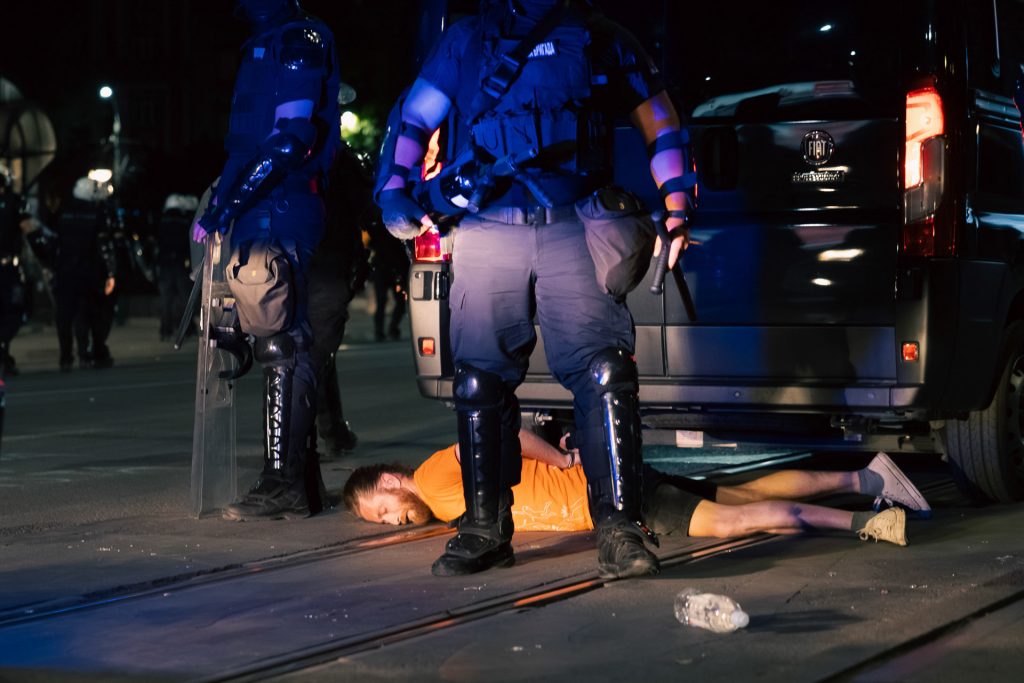
Similar violence across the country
Similar events took place in Bačka Palanka that same evening. When protesters exercised their right to dissent, masked SNS loyalists descended with fists and clubs. Here too, the police formed protective chains not around the bleeding citizens on the pavement, but around the ruling party’s property. The message was unmistakable: the government is intent on crushing the protestors, whether in its official or unofficial capacity. And rather than acting as neutral arbiters, the police actively guard those carrying out assaults.
Aggression also occurred in other locations. In Novi Sad, SNS supporters hurled flares and pyrotechnics from party offices at the crowds below, while riot police moved in – not to stop the assault, but to break up the protests.
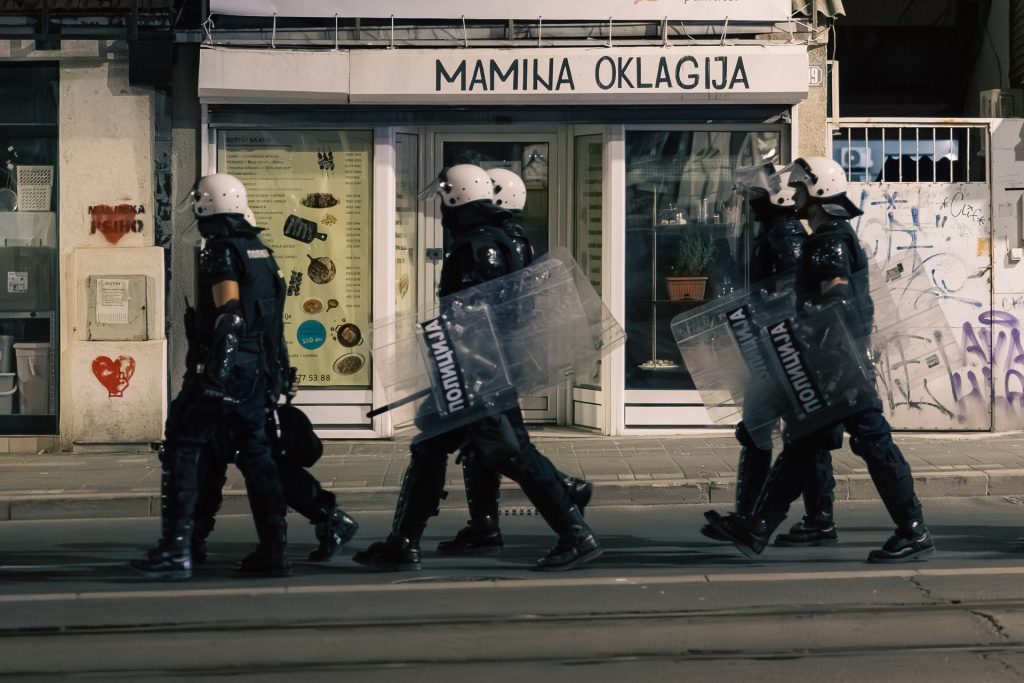
Serbians respond with defiance and anger
The next evening, on 13 August, people across the country angrily took to the streets in response, in a collective refusal to be tyrannised. In city after city, riot units again guarded SNS offices while masked party supporters roamed freely, picking fights, injuring demonstrators, and retreating behind police lines when threatened by citizens. Where protesters sought protection from the police, they found batons, tear gas and handcuffs.
In Belgrade’s Vračar municipality, one police officer in full riot gear slapped a woman in the face with brute force. A video of the event spread like wildfire on social media – a jarring symbol of a state that brutalises its own people while guarding those who attack them.
Meanwhile in Novi Sad, groups of men dressed in black, wearing balaclavas and bulletproof vests, emerged from the direction of SNS headquarters, throwing stun grenades, stones, bricks, chairs and glass bottles at protesters. A masked figure from among them lifted a gun above the crowd and fired a shot into the air. Panic rippled through the protesters.
Hours later, it emerged that the gunman was not a random thug but a warrant officer of the Serbian Army, on a ‘routine security assignment’. The officer claimed he fired a ‘warning’ shot to protect a colleague, but offered no explanation as to why the Army was deployed to defend party premises. Footage and eyewitness accounts confirmed that police made no move to protect citizens from these armed groups, instead forming a tight cordon around them as they attacked.
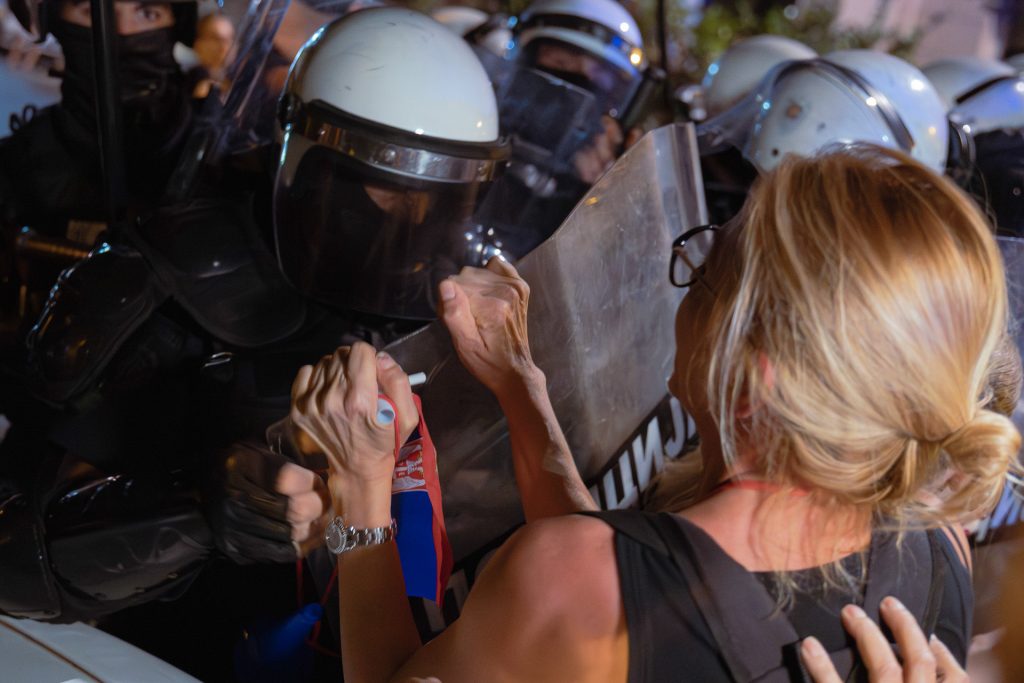
Failing government unable to stop the tide
Images in Serbia were the same across the country this week: police protecting the ruling party, masked men attacking with impunity, the law looking the other way as citizens bleed in the streets. This is the flailing of a government that knows its grip is slipping and that fears the crowds more than it trusts its own mandate.
In that fear lies the seed of change: Serbia’s police may no longer protect citizens, but it cannot stop what has begun. The will of the people is moving forward, through tear gas and batons, through the insults of power and the fists of hired thugs.
Many believe the end is near – not because the streets are quiet, but because they are no longer willing to be silent.
